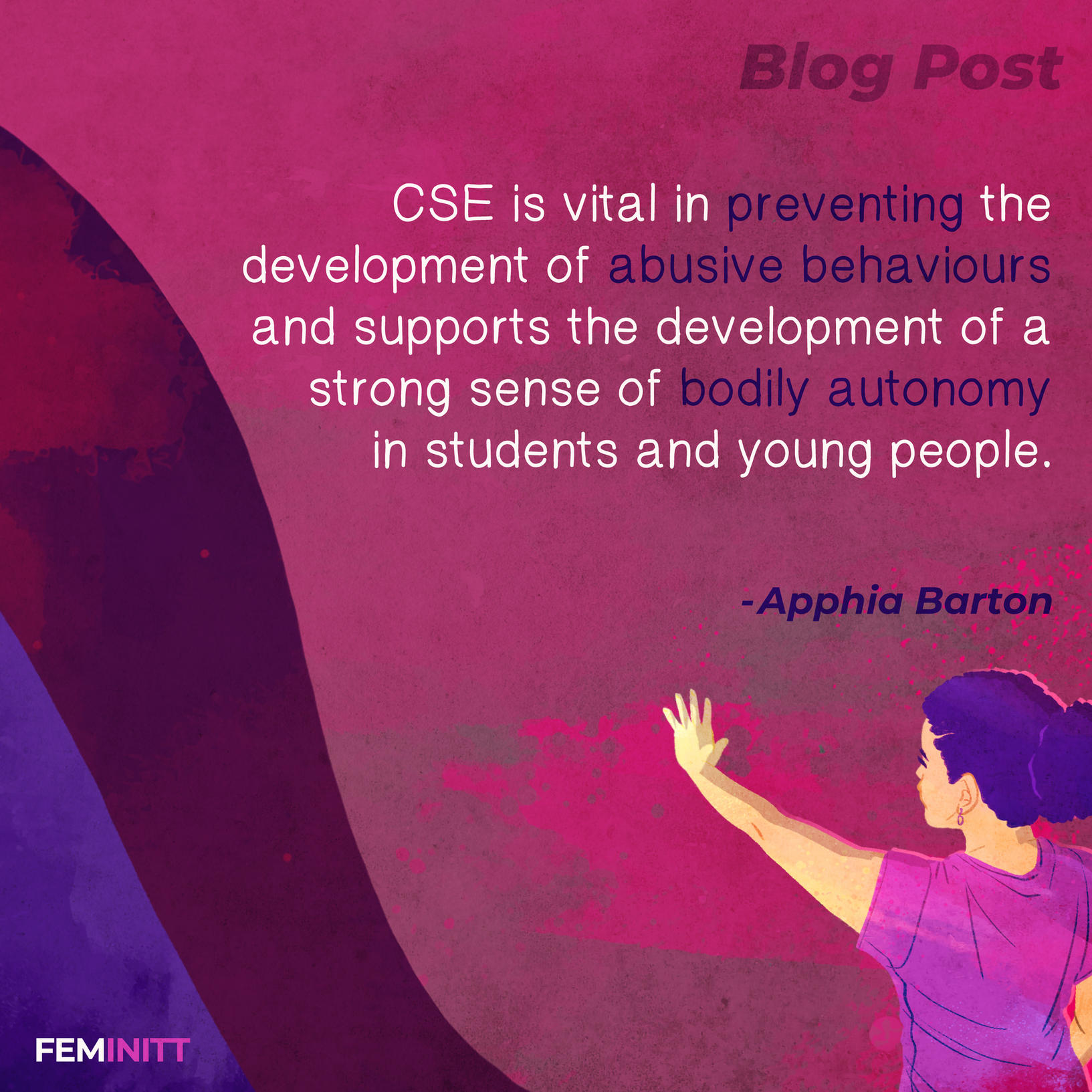Re-envisioning HFLE in the Caribbean
Updated: Mar 20, 2024
To re-envision Health and Family Life Education (HFLE) in the Caribbean is to move the well-intentioned and established educational program closer to the fullness of its potential. Comprehensive Sexuality Education (CSE) is a necessary component in this realization of HFLE’s potential in the Caribbean. By incorporating CSE in HFLE, sexuality education that is comprehensive, age-appropriate and relevant will be accessible to young persons at integral developmental stages in their lives.
CSE plays a critical role in creating a more inclusive and violence-free society. CSE is vital in preventing the development of abusive behaviours and supports the development of a strong sense of bodily autonomy in students and young people. It equips young people with the tools to make informed choices, to recognize and respond to coercion, abuse, and unhealthy relationship dynamics. Through CSE young people learn how to assert themselves, and to establish and communicate their boundaries. It emphasizes the importance of consent, respect and communication in intimate relationships.
CSE and HFLE are related but distinct concepts. While they both address aspects of sexual health, at this time, HFLE in the Caribbean does not offer a comprehensive approach. By also addressing consent, power imbalances, harmful social norms, gender equality, and sexual and reproductive health while emphasizing the values of respect, inclusion and diversity, HFLE can better meet the urgent deficiency of the current program and address the growing need for an inclusive educational curriculum for a sustainable future.
HFLE is an educational program typically integrated into primary and secondary school curriculums. It usually includes topics such as nutrition, personal hygiene, sexual health, family life and substance abuse prevention. HFLE aims to provide students with the knowledge and skills to make informed decisions about their health and overall wellbeing. The content and delivery methods of the HFLE curriculum may vary depending on cultural, social, and regional contexts.
CSE is an approach to education that provides age-appropriate and comprehensive, evidence-based information about human sexuality. CSE seeks to provide comprehensive information, dispel myths and misconceptions, and encompasses a wide range of topics in addition to the biological aspects of sexual health. CSE integrates the socio-cultural, and emotional dimensions of human sexuality and sexual health.
The key components of Comprehensive Sexuality Education typically include:
1. Human Development: CSE addresses the physical, emotional, and social aspects of human development from childhood through adolescence to adulthood. It covers topics such as puberty, reproductive health, and emotional well-being.
2. Relationships and Communication: CSE focuses on healthy relationships, consent, communication skills, and building positive interactions with peers, friends, family, and intimate partners.
3. Sexual and Reproductive Health: CSE provides accurate information about sexual and reproductive health, including contraception, sexually transmitted infections (STIs), pregnancy, and safe and responsible sexual behaviour.
4. Gender and Sexual Identity: CSE promotes understanding and respect for diverse gender identities and sexual orientations. It addresses issues related to gender roles, stereotypes, and discrimination, as well as inclusivity.
5. Rights and Values: CSE emphasizes the importance of human rights, including sexual and reproductive rights. It encourages the development of values such as respect, consent, equality, and empathy.
6. Decision-Making and Responsibility: CSE aims to develop critical thinking skills and decision-making abilities, empowering individuals to make informed choices about their own bodies, relationships, and sexual behaviour.
The ultimate goal of both HFLE and CSE is to provide individuals with the knowledge, skills, and values necessary to make informed decisions, and promote the overall healthy well-being of the individual. CSE plays a crucial role in addressing the health and well-being of all.
Enhancing the HFLE curriculum to include CSE is necessary to realize the potential of HFLE but in researching for this article, another notable deficiency reared its head. In the implementation of a Common Curriculum for HFLE across four schools in the Caribbean, teachers and coordinators expressed that one of the challenges of implementing a comprehensive HFLE curriculum was ongoing problems with scheduling HFLE class time, disruptions and time management of lessons and discussion. This raises issues about whether sufficient time is allocated for HFLE or can be, given other priorities and school schedules.
An enhanced HFLE curriculum will undoubtedly be satisfying on paper, but the practice and prioritization of HFLE is also imperative. Re-envisioning HFLE is pointless if the revamped version remains solely in our thoughts and prayers.
Sources and Resources:
Key Components of Comprehensive Sexuality Education from: Miedema, Esther & Le Mat, Marielle & Hague, Frances. (2020). But is it Comprehensive ? Unpacking the ‘comprehensive’ in comprehensive sexuality education. Health Education Journal. 79.10.1177/0017896920915960: https://www.researchgate.net/publication/341293743_But_is_it_Comprehensive_Unpacking_the_'comprehensive'_in_comprehensive_sexuality_education
STRENGTHENING HEALTH AND FAMILY LIFE EDUCATION IN THE REGION The Implementation, Monitoring, and Evaluation of HFLE in Four CARICOM Countries: https://uwispace.sta.uwi.edu/dspace/bitstream/handle/2139/50460/Strengthening%20HFLE.pdf?sequence=1
An Investment for the Present and for the Future: Comprehensive Sexuality Education: https://www.feminittcaribbean.org/post/an-investment-for-the-present-and-for-the-future-comprehensive-sexuality-education


